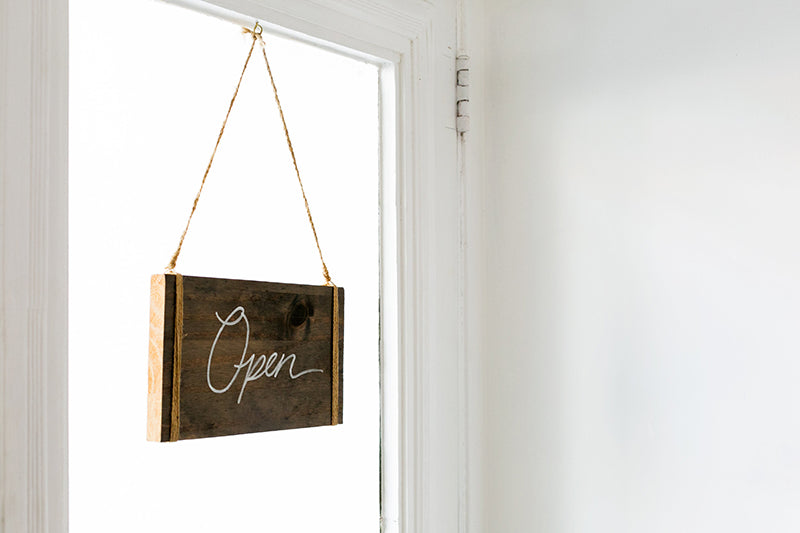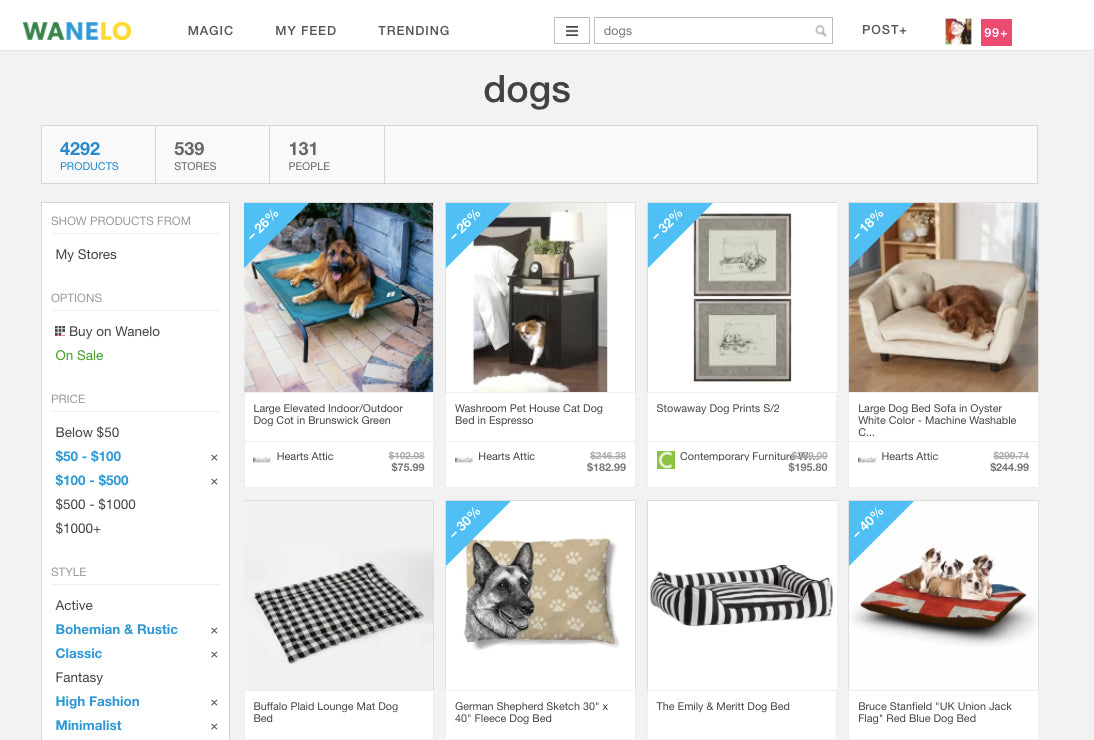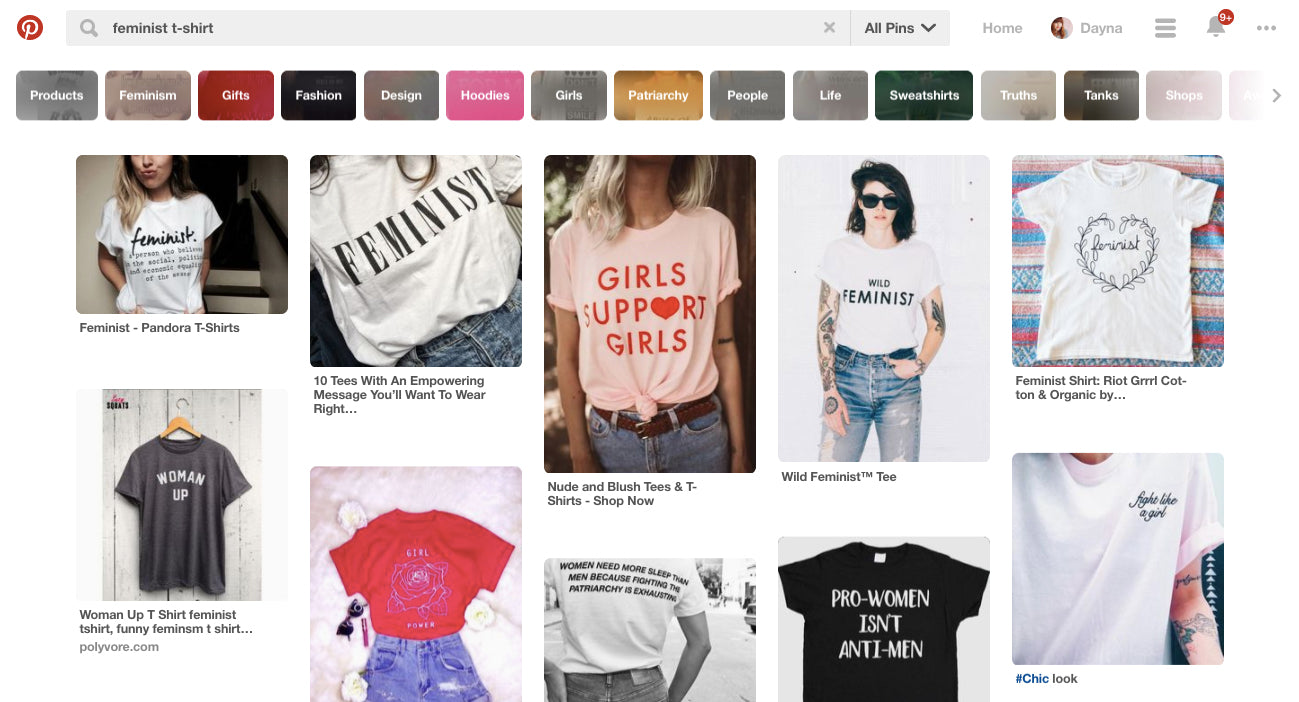Happy Thanksgiving to our American merchants, partners, and friends!
For many in the U.S., today is a day to give thanks and spend time feasting with family. For independent store owners globally, it’s likely a day of chaos. It is, in fact, the day before the kick-off of Black Friday Cyber Monday, the craziest shopping weekend of the year.
And it doesn’t end there—holiday sales will soon hit a fever pitch, and small businesses are stepping up.
My inbox is already full of deals from Shopify merchants getting in on the action. And I’m thankful. As I do my own holiday shopping, I’m eager to skip the crowds and malls in favour of supporting independent local and online shops.
Why? I know I can find unique gifts while also supporting the hard work of small business owners. Win win. Read on to learn why you should consider supporting independent retailers with your gift-buying dollars.
BONUS: at the end of this post, we have five pro tips for merchants to help you celebrate your smallness to attract holiday shoppers.
What’s a “small” business anyway?

But like age, it’s nothing but a number. Small business is an attitude. Shopify is a company of over 2000 employees now, yet at its heart (or at least in mine) it’s still a startup.
What defines a small business beyond its size? And who are these entrepreneurs?
They are doers, calculated risk-takers. They are scrappy, ambitious, and disruptive. “They're willing to take on financial risk, always choosing growth over profit, and are optimistic to a fault,” says Yoav Schwartz, Co-founder of Uberflip.
Above all, they’re not all talk. They do and make and build things despite uncertainty, because it’s what drives them. Their risks lead to innovation that moves the world forward. And we need them.
Small business owners do and make and build things despite uncertainty, because it’s what drives them.
Why support small businesses?
Today, there are a reported 29.6 million small businesses operating in the U.S. alone, but only half of new businesses will survive past 5 years. Competition from chains, skyrocketing brick and mortar leases, and struggles getting website traffic all contribute. Small businesses are important to the economic and social fabric of our society, though, and we all play a part in their survival.
“Choosing to support an independent business is an act of respect; it’s acknowledging the tremendous risk and challenges inherent to starting your own thing.” - Matt Kliegman, co-founder The Smile, The Smile To Go, Black Seed Bagels, via Forbes
Shopping small in many cases provides a better customer experience over big box and chain counterparts—think more personalized service and unique products. But putting your dollars into independent businesses has benefits beyond your own experience.
Small business survival ensures the livelihood of communities, the creation of meaningful jobs, the support of makers, and the preservation of traditional production methods.
Small business survival ensures the livelihood of communities, the creation of meaningful jobs, the support of makers, and the preservation of traditional production methods.
Let’s dig deeper.
Economic Impact
Many huge public companies literally started in a garage. Ever heard of that little Silicon Valley startup called Apple? Putting your money into small businesses helps to promote innovation and growth. Apple now claims to be responsible for 2 million jobs in the US alone, with the lion’s share attributed to the App Store ecosystem. That’s 1,530,000 jobs within the app development community, and, you guessed it, they’re mostly small businesses.
Entrepreneurship inspires and facilitates more entrepreneurship, and in the case of Apple, a successful company created a platform for thousands of other entrepreneurs.

In terms of local brick and mortar businesses, the impact is even more obvious.
When you shop in small community mom and pops or in independent boutiques in larger cities, your dollars stay in the community, and help local development. The same is true from a B2B perspective—say, in the case of restaurants buying ingredients from local producers—building symbiotic relationships that help the whole business community thrive.
In fact, small businesses return three times as much money per dollar back to the local community than their chain counterparts.
Social Impact

Small businesses, especially in the case of brick and mortar, are often major contributors to the heart of a community. “Main Street” becomes a hub of activity, where businesses, BIAs, and local government work collectively to create and preserve the character of the town or neighbourhood. A deliberate focus on supporting local business helps to drive up the appeal of the shopping area, attracting tourism dollars into the community. The effect has positive impact on adjacent businesses like hotels, attractions, and tours.
CASE STUDY: The town of Almonte, Ontario boasts a retail strip that thrives with local support and collaboration. Business owners are partners rather than competitors, working together for the greater good of the community. Emily Arbour, owner of Cheerfully Made, runs a yearly art and craft show providing exposure to dozens of makers and budding entrepreneurs.
Local businesses also tend to be involved in communities beyond just providing goods or services. Supporting local businesses indirectly puts money into community events or sports teams that are often sponsored by these businesses. According to a recent survey, 42% of small businesses give at least $1000 to charity, and 90% of those donations benefit local organizations.
Business owners frequently become mentors and decision-makers in the community, too, working with governments to improve infrastructure like parking and sidewalks that benefit the community at large.

Lastly, small businesses create local jobs. In 2014, U.S. small businesses employed 57.9 million people, or 47.8% of the private workforce. The impact is clear from an economic standpoint, but a healthy presence of small businesses in communities also helps people learn on-the-job business skills, empowering the next wave of entrepreneurs.
“Independent businesses make neighborhoods healthy; they ground them.” – Bernie Telsey, Founder, Telsey + Company, via Forbes
Social good: ethical manufacturing and sourcing
Large and chain retailers have their place—they win on price points (larger quantities, lower margins) and have consistency that customers expect. I know that if I need a party dress, Zara will have something affordable that I love. There are locations in every major city, or I can have it shipped via their Canadian warehouse within a few days. But how do I feel about the reports of unfair working conditions in their factories? Not great.
While not true in every case, smaller businesses may have a shorter manufacturer-to-consumer journey, meaning there is more transparency in ingredients, materials, and source of the products you buy. Small businesses are often makers, producing goods locally. Or, they are resellers of products made by small-batch brands.

Smaller brands often have the means to manufacture and source locally and ethically because of smaller quantities. You may pay more for these goods versus similar items at chain retailers, but you’re paying for the peace of mind that comes with ethical production.
A better shopping experience
While larger brands have recognized that immersive experiences win in retail, the intimacy and personalized care of small businesses is hard to scale.
“Small businesses provide the feeling that a real person is behind it all, someone who cares more about giving us a quality product or service, over just taking our hard earned dollars.” - Annie Bukhman (designer, founder - Gift Shop Brooklyn), via Forbes
Customer service is a big differentiator. Let’s use Zara as an example again. If I buy a dress online and have a concern or question about it, I will likely be contacting a customer support centre or visiting a sales rep in store. I may have a great experience, but what if my concern needs escalation? How long will it take to reach someone who can provide a resolution?
Now, I’m not knocking large companies—I’ve had some very positive experiences (shoutout to Airbnb). The difference however, is this: if I buy a dress from an independent ecommerce or retail business and I have a concern, the likelihood of speaking directly to the owner is high.

Many new merchants on Shopify launch stores alone, and fill every role in the business, including customer service. Without the layers of management and corporate policy, small business owners can bend their own rules—and good ones will bend over backwards for every customer, because every single customer matters when you’re small.
Good small business owners will bend over backwards for every customer, because every single customer matters when you’re small.
Shopping small businesses is often a point of discovery. Smaller, local, and handmade brands often can’t fulfill wholesale orders for larger chains, and their goods can generally only be found direct from the brand’s own website/sales channels or in independent retailers. Where department stores win on depth, small businesses shine in diversity and uniqueness.
How to support small businesses this holiday season (and where to find them)
Have you started your holiday list yet? If not, you’re in luck! We’re less than 24 hours away from the best shopping discounts of the year. As you set out to battle the crowds and snag some online deals on Black Friday Cyber Monday, consider spending a little more time to find and support independent local retailers and ecommerce stores.
It’s easy to hit Best Buy or Gap or Sak’s for your needs—they’re ubiquitous. However, we’ll make this easy on you: we’ve compiled a list of places to snag some really unique gifts (and support entrepreneurship in the process):
- Check crowdfunding platforms like Kickstarter and IndieGogo—support innovation and get your hands on brand new products
- Search the Shopify Blog—we’ve featured hundreds of incredible businesses selling everything from soap to vinyl to bikes
- Add yourself to email lists for product discovery sites like Uncrate or Product Hunt
- Browse discovery-based platforms like Wanelo, Instagram, and Pinterest


- In Canada, check out the Canadian Federation of Independent Business’ directory of small retailers and filter by city
- In the U.S. support Small Business Saturday, and browse thousands of participating businesses in all 50 States
- Hit your local holiday markets. Check local publications, listings, and Facebook events to discover markets in your area. There are also plenty of online resources covering major markets globally, including:
- The World's 15 best Christmas Markets via CNN
- 15 of the best Christmas markets in Europe via The Telegraph
- ChristmasMarkets.com
- 12 of the Best Christmas Markets in the U.S.
- Visit local retail shops. Some shops who carry multiple lines may also help you discover new brands to explore later online
- Check out the #BFCMwin hashtag on Twitter and Instagram for Black Friday Cyber Monday deals from independent Shopify merchants

Celebrate your smallness: tips for merchants
Now that we’ve convinced the masses that shopping small is worth it, it’s your turn. Attract customers looking for personal experiences and unique gifts by highlighting what makes you different from the big box stores and chains.
Tell Your Story
You are a real human with direct touch points with your customers—take advantage of it! Tell your story through your about page and social channels, and put your face out in front of your brand. Studies show that storytelling creates trust—tell yours in an authentic way in a voice that speaks to your target customers.
Here's an example by Shopify merchant, Farmhouse Pottery:
Putchipuu tells their story via an About page:

Participate in markets and pop-ups
Market audiences are already primed for discovery. If you’re struggling to drive traffic to your website, give yourself a boost with built-in traffic. This is your chance to win customers over to your brand with killer displays, your personality and excitement about your products, and hands-on experiences. You’ll benefit from the collective audience of other similar brands and the event’s own marketing efforts to gain new customers.
TIP: If you already have a physical storefront in the U.S., get involved in Small Business Saturday.

READ: Markets, Fairs, and Festivals: How to Choose the Right Events for Your In-Person Sales
Share your process
Consumers today are seeking socially responsible marketing, prefer brands with sustainable practices, and expect that brands give back. Smaller businesses that are more likely to fit these criteria can tap into these trends in consumer behaviour.
Is your product made locally, or by hand? Do you source fair trade products from skilled artisans? Create video content that demonstrates your process, and use in marketing and on product pages. A peek behind the curtain creates transparency, and appeals to consumers who value ethical practices.
Get inspired by Viberg Boot, as they bring you into their process in this video by Inventory Magazine:
Try online marketplaces and social selling
List your products on marketplaces and selling channels where your ideal customers are already hanging out. Users of, say, Pinterest and Amazon shop these channels to discover new and unique brands, products, and gifts in one place.
READ: Selling on Marketplaces: How to Choose Where to List Your Products
Stick together
If you’re a brick and mortar shop, band together with other local businesses to celebrate your smallness. Send customers to each other’s shops, pool resources to market the shopping strip as a destination, and host collaborative events.
READ: Squad Goals: Four Collaboration Ideas to Boost Your Small Business’ Sales

Shopify now powers more than 500,000 businesses all across the globe, most of those “small”. The diverse community includes home-based businesses, ecommerce stores, mom and pop shops, multi-location retail stores, and everything in between. They all play a small part in collectively keeping entrepreneurship alive.
And you can, too: where you spend your holiday dollars matters.
